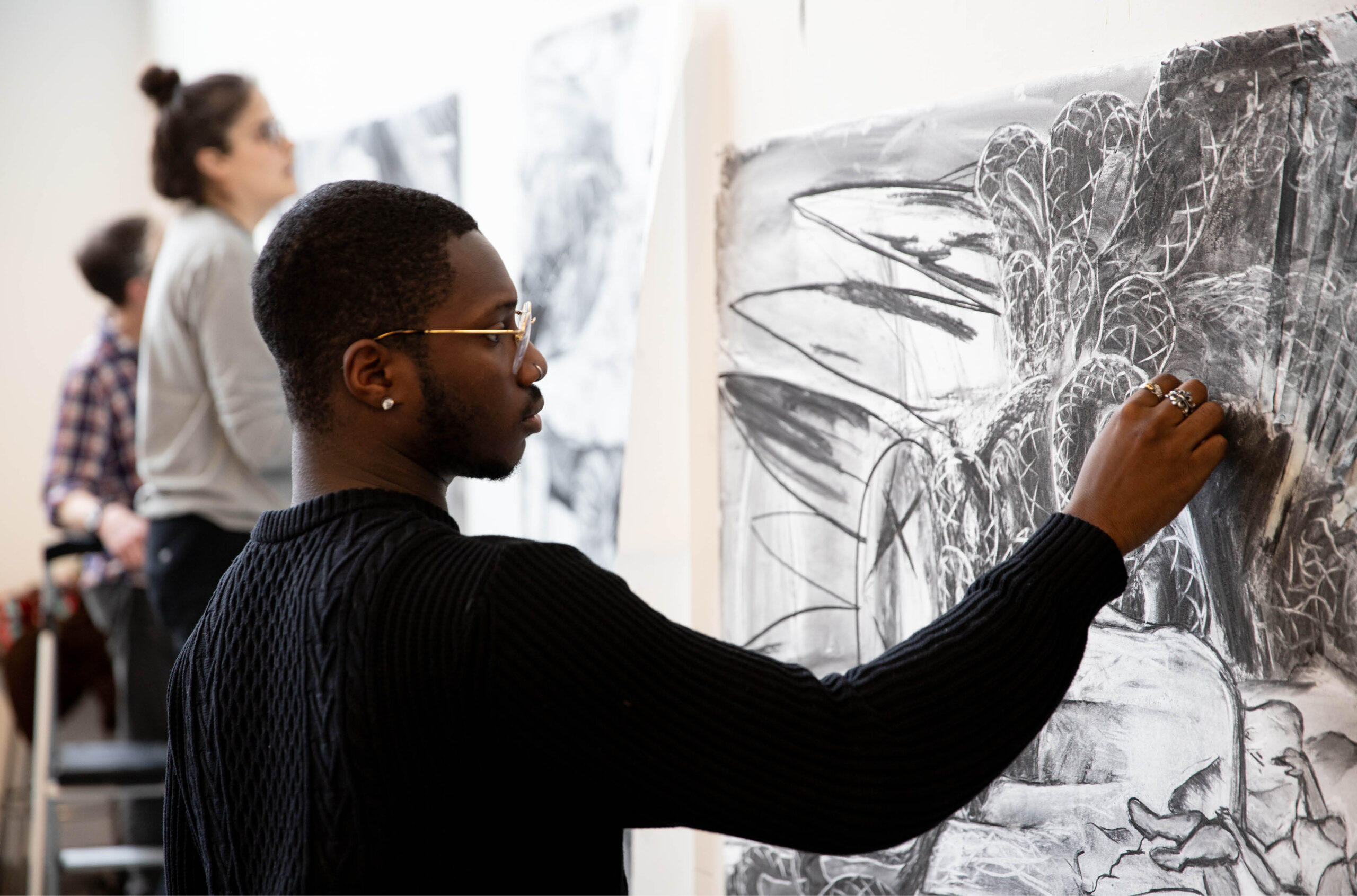What I wish I knew as an early-career professor
Just starting out? Worried about your lectures, your students, your time-management skills and more? Eight academics offer up their advice.

There are plenty of mistakes to go around early in one’s academic career. Whether they happen in front of a class or behind the scenes, hindsight shows us how to do better. Here you’ll find a mix of experience and advice from eight professors who’ve been there, done that and lived to share some lessons.
Don’t underestimate administrative tasks
Brian Chen
Associate professor of medicine, and neurology and neurosurgery, McGill University
![]() One of the most exciting things for me when I was a new professor was renovating my new lab. It felt very much like opening a restaurant. Often, considerations like lab bench heights, distilled water and Ethernet ports are shielded from you as a postdoc. I felt adept at navigating administrative tasks and bureaucracy, but I still underestimated the amount of follow-up required for renovation issues and infrastructure changes. In the end, though, everything worked out and I am still amazed at the amount of whiteboard space that my lab can use up.
One of the most exciting things for me when I was a new professor was renovating my new lab. It felt very much like opening a restaurant. Often, considerations like lab bench heights, distilled water and Ethernet ports are shielded from you as a postdoc. I felt adept at navigating administrative tasks and bureaucracy, but I still underestimated the amount of follow-up required for renovation issues and infrastructure changes. In the end, though, everything worked out and I am still amazed at the amount of whiteboard space that my lab can use up.
Another mistake I made was not fully appreciating the importance of research trainees being able to get fellowships, and how quickly stipends and salaries add up if your personnel do not have external financial support. My biggest surprise was the diversity of tasks that you become responsible for, and then how little time left there is to accomplish anything. Time goes by very quickly the more things you have to juggle, whether in your work life or in your personal life.
Less note-grinding, more discussion
Iva Apostolova
Assistant professor in the faculty of philosophy, Dominican University College
![]() I was still in grad school when a teaching opportunity first presented itself to me. The course was on philosophical issues in feminism. It turned out to be a small group of about 30 students from across the academic spectrum. Fifty-plus courses and more than 3,000 students later, I still think about it. What I didn’t know at the time was that teaching is, to a large degree, performance-based. And, not unlike any other performance, intimate settings are the hardest to work with as there is nowhere to hide. I had typed-up notes for every lecture, which I went through meticulously using all available boards in the classroom. What I hadn’t realized was that my note-grinding did little to stimulate class discussion. I was so concerned with breaking down the arguments in the texts I had assigned that I did not pay heed to the fact that a discussion would have helped the students understand the texts better than any guided formal textual analysis ever would.
I was still in grad school when a teaching opportunity first presented itself to me. The course was on philosophical issues in feminism. It turned out to be a small group of about 30 students from across the academic spectrum. Fifty-plus courses and more than 3,000 students later, I still think about it. What I didn’t know at the time was that teaching is, to a large degree, performance-based. And, not unlike any other performance, intimate settings are the hardest to work with as there is nowhere to hide. I had typed-up notes for every lecture, which I went through meticulously using all available boards in the classroom. What I hadn’t realized was that my note-grinding did little to stimulate class discussion. I was so concerned with breaking down the arguments in the texts I had assigned that I did not pay heed to the fact that a discussion would have helped the students understand the texts better than any guided formal textual analysis ever would.
Also, after reading the students’ evaluations and comments at the end of the semester, I realized that what they really wanted was to know my take on the texts and my position on the issues brought up. This was my first brush with what later became a pedagogical credo: taking a stand gives the professor gravitas without the posturing of either authoritativeness or over-familiarity. At the same time, it creates a safe space for a public discourse on even the most stubborn of issues.
Keep an open mind
Veselin Jungic
Teaching professor in the department of mathematics, Simon Fraser University
![]() At the very beginning of my teaching career, I was assigned to lead a group of undergraduates to the annual meeting of electrical engineering students from across the former Yugoslavia. We traveled by night train. The whole group was in a great mood thanks to a student who beautifully played the guitar and was able to sing any song that anyone suggested. The young man was a student in my math class and was not doing well in it. Until that night, I was proud of all the mathematics that I was learning and creating at the time, and was pretty much convinced that anyone who didn’t understand mathematics was dumb. And there I was, sitting quietly in the corner of a train rushing through the Bosnian darkness, looking at this happy group of young people, and realizing that I was the one who was dumb.
At the very beginning of my teaching career, I was assigned to lead a group of undergraduates to the annual meeting of electrical engineering students from across the former Yugoslavia. We traveled by night train. The whole group was in a great mood thanks to a student who beautifully played the guitar and was able to sing any song that anyone suggested. The young man was a student in my math class and was not doing well in it. Until that night, I was proud of all the mathematics that I was learning and creating at the time, and was pretty much convinced that anyone who didn’t understand mathematics was dumb. And there I was, sitting quietly in the corner of a train rushing through the Bosnian darkness, looking at this happy group of young people, and realizing that I was the one who was dumb.
Value your time wisely
Brian McIlroy
Professor of film studies, University of British Columbia
![]() After 27 years in a faculty position, I have often thought that I could have made different and better decisions along the way. Although there is a notion that research-stream faculty spend 40 percent of their time each on research and on teaching, and 20 percent on service, I have observed that individuals do not often divide up their work in this way. In my own case, the division has been a relatively even split among all three areas. I do this by choice; others may have a bias to one area over another.
After 27 years in a faculty position, I have often thought that I could have made different and better decisions along the way. Although there is a notion that research-stream faculty spend 40 percent of their time each on research and on teaching, and 20 percent on service, I have observed that individuals do not often divide up their work in this way. In my own case, the division has been a relatively even split among all three areas. I do this by choice; others may have a bias to one area over another.
The lion’s share of prestige below the level of associate dean is in research publications. Research outcomes are also the main considerations for tenure and promotion. I would have been grateful for someone to have told me in my mid-to-late 30s that I should beware the “chapters in a book syndrome,” whereby you agree to write a chapter for someone else’s edited collection. What I found is that once I had written a few, I would regularly be asked to contribute more, taking time away from book-length manuscripts or peer-reviewed journal articles. In my own modest citation count, it’s clear the books and journal articles I wrote achieve the best visibility, whereas book chapters – while useful for building friends and networks in the discipline – tend to be easily passed over. Ultimately, I think you have to be a tad street-smart if you are to get the best value out of your research-time expenditure, no matter what percentage breakdown you choose.
Keep in touch with your mentors
Gillian Crozier
Associate professor of philosophy, Laurentian University
![]() When I was starting out in my first tenure-track job, I quickly got caught up in the usual grind and didn’t keep in touch with my former instructors as much as I wish I had. Though understandable, this wasn’t advisable – mentors have not only a wealth of experience but a vested interest in the success of their graduates. Michael Ruse (my MA supervisor and mentor who is currently a professor of philosophy at the State University of Florida) and I have been exchanging emails about what the recipe for academic success might be. Let me share with you what I only half-jokingly refer to as the “Ruse Three-Point Plan for Success in Academia” (advice mostly in his own words, but with my own spin):
When I was starting out in my first tenure-track job, I quickly got caught up in the usual grind and didn’t keep in touch with my former instructors as much as I wish I had. Though understandable, this wasn’t advisable – mentors have not only a wealth of experience but a vested interest in the success of their graduates. Michael Ruse (my MA supervisor and mentor who is currently a professor of philosophy at the State University of Florida) and I have been exchanging emails about what the recipe for academic success might be. Let me share with you what I only half-jokingly refer to as the “Ruse Three-Point Plan for Success in Academia” (advice mostly in his own words, but with my own spin):
-
- Develop a nose for a problem. This might come easier for some than others, but if you’ve made it this far then you can hone your instinct for important puzzles by sharing your work as much as possible – formally by submitting to journals, presenting at conferences, etc., or informally through conversations, sharing work-in-progress with colleagues, etc. – and by keeping up on the work done by others in and sometimes outside of your field.
- Find a way of living with one’s thin skin. You are going to face a lot of rejection (if you’re doing it right); but that doesn’t mean you’ll get used to it. Your task is to find a way to get past it. Positive reinforcement is a powerful tool, so make a list of shiny things you want and get one for yourself every time you click that scary “submit” button.
- Be willing to work longer and harder than you ever thought necessary or possible. Two laws rule our academic lives more than any other: Parkinson’s (“Work expands so as to fill the time available for its completion”) and Hofstadter’s (“It always takes longer than you expect”). You can’t win, but you can put up a good fight. Set yourself up with some sticks (such as the rigid deadlines provided by conference presentations and grant applications) and carrots (such as the rewards outlined in no. 2 above).
Michael’s advice strikes me as invaluable, and it’s grounded in decades of first-hand experience training and mentoring budding young scholars. I would humbly submit one final addendum:
4. Don’t hesitate to lift material from your supervisors (with attribution, of course).
Nurture a life beyond the academy
Janay Nugent
Associate professor in the department of history, University of Lethbridge
![]() As an early-career scholar, I wish that I had heeded advice to take my holidays. When prepping new classes and getting one’s research program ready for tenure review or for the job market, it feels as though every waking moment must be spent at work. While there are many demands on early-career scholars, making space for a life beyond the academy will help with long-term endurance in meeting professional goals, building towards a reasonable work-life balance, and maintaining mental and physical health.
As an early-career scholar, I wish that I had heeded advice to take my holidays. When prepping new classes and getting one’s research program ready for tenure review or for the job market, it feels as though every waking moment must be spent at work. While there are many demands on early-career scholars, making space for a life beyond the academy will help with long-term endurance in meeting professional goals, building towards a reasonable work-life balance, and maintaining mental and physical health.
There are many ways one might go about consciously constructing a life beyond work. Investing in a personal life through scheduling time away from work or creating a policy of not answering work-related emails on the weekend sets boundaries and frees time for a personal life. Volunteering for an organization that you are passionate about builds ties to community. And, taking your vacation without bringing the work with you helps with physical and mental regeneration.
Being an academic is a privilege, but it is also very demanding and intense. If we don’t try to carve out a life for ourselves outside of the university, it can become all-encompassing, exhausting, and for some it can become toxic. As a graduate student, I was told by a senior professor that the PhD is more about endurance than intelligence. I wish, as a young scholar, I would have tried to find ways to nurture endurance.
The importance of being earnest
Christelle Lison
Associate professor in the faculty of education, Université de Sherbrooke
![]() Being a teacher isn’t about being a friend to students. Everyone knows that, of course, but when you’re starting out and look rather like a student yourself, things aren’t as easy as they seem. When I began my career, I was teaching future grade-school teachers. I have a background in psychology, so I tended to be very attentive to students’ needs, to listen to them and build a climate of trust.
Being a teacher isn’t about being a friend to students. Everyone knows that, of course, but when you’re starting out and look rather like a student yourself, things aren’t as easy as they seem. When I began my career, I was teaching future grade-school teachers. I have a background in psychology, so I tended to be very attentive to students’ needs, to listen to them and build a climate of trust.
One of my students started coming to talk to me after every class. She would tell me about her life, her difficulties with her husband, her studies, her doubts and her desires. I never gave her advice, but I listened. A few weeks into the course, we had our first summative evaluation. Afterwards, I found a furious young woman waiting to vent about her grade. “Friends don’t give friends 12/20,” was how she saw it.
That sentence hit me hard. What was it she had not understood about my role? What could I have done to make her think we were friends? It took me a few minutes to realize I obviously hadn’t made it clear enough that our relationship would in no way affect my role as an evaluator or the way I would exercise that responsibility.
The semester came and went, and I never regained that student’s trust. Ever since, I do my best to set things straight right away. I believe in a positive work environment and in listening to students’ needs, but that doesn’t mean I am their friend. To prevent unpleasant surprises for both you and your students, never lose sight of the importance of a transparent approach.
Be prepared and seek feedback
Anaïs Tatossian
Assistant professor in the department of French studies, Concordia University
![]() For those who have recently accepted a faculty position, here are a few tips:
For those who have recently accepted a faculty position, here are a few tips:
Training: Make sure you attend the new faculty orientation day and/or professional development sessions at your university’s teaching centre. These are great opportunities to talk to colleagues and gain valuable advice about effective course-planning strategies, making large classes interactive and using technology in class.
Time management: Without a doubt, the first year is the most difficult and most important one of all. You will have three or four new courses to prepare each semester. Time management is the key to success when planning lectures and learning activities. Students place great importance on evaluations and grades, so plan your marking process carefully to uphold your commitments to them. And remember to take time for yourself — the biggest challenge of positions like these is finding a work-life balance.
Preparation: Have fun with teaching, even if students appear less passionate about the subject matter than you are. It all comes down to the way you teach and the different examples you use to convey the material. Feel free to innovate and experiment in your teaching.
Improving your teaching: Students can tell whether your feedback on assignments and tests is useful or whether the course materials facilitate their learning. You can ask for an informal, mid-semester evaluation of your performance to get students’ suggestions and adjust your teaching style.












Post a comment
University Affairs moderates all comments according to the following guidelines. If approved, comments generally appear within one business day. We may republish particularly insightful remarks in our print edition or elsewhere.
3 Comments
As a PhD student about to complete my degree, and make the plunge into the academic world (assuming someone hires me!), this is excellent advise! The insight and observations offered, backed up by years of experience, trials, and accomplishments, are slivers of advise that I’m sure I will draw upon in future years.
Advice…is something you get or give. Advise is something you do.
Two things I’ve learned or noticed:
– Fussing vs. focusing: don’t waste time by over-doing things (e.g. curricula proposals); produce things quickly rather than stress over the minutiae that no one reads anyway.
– Learn the institution: get involved in the institution beyond your department so that you meet other people and can learn how the institution (dys)functions.